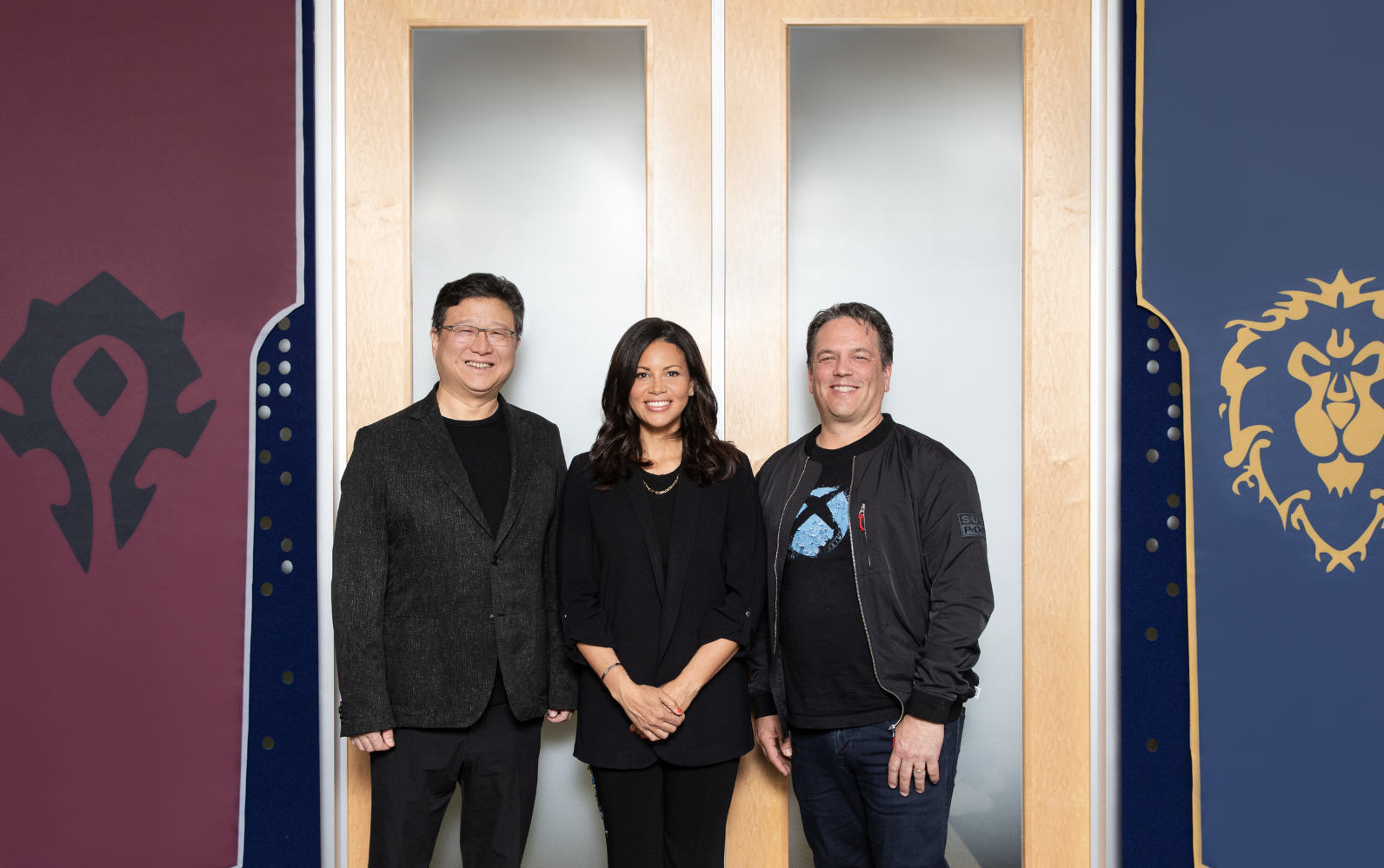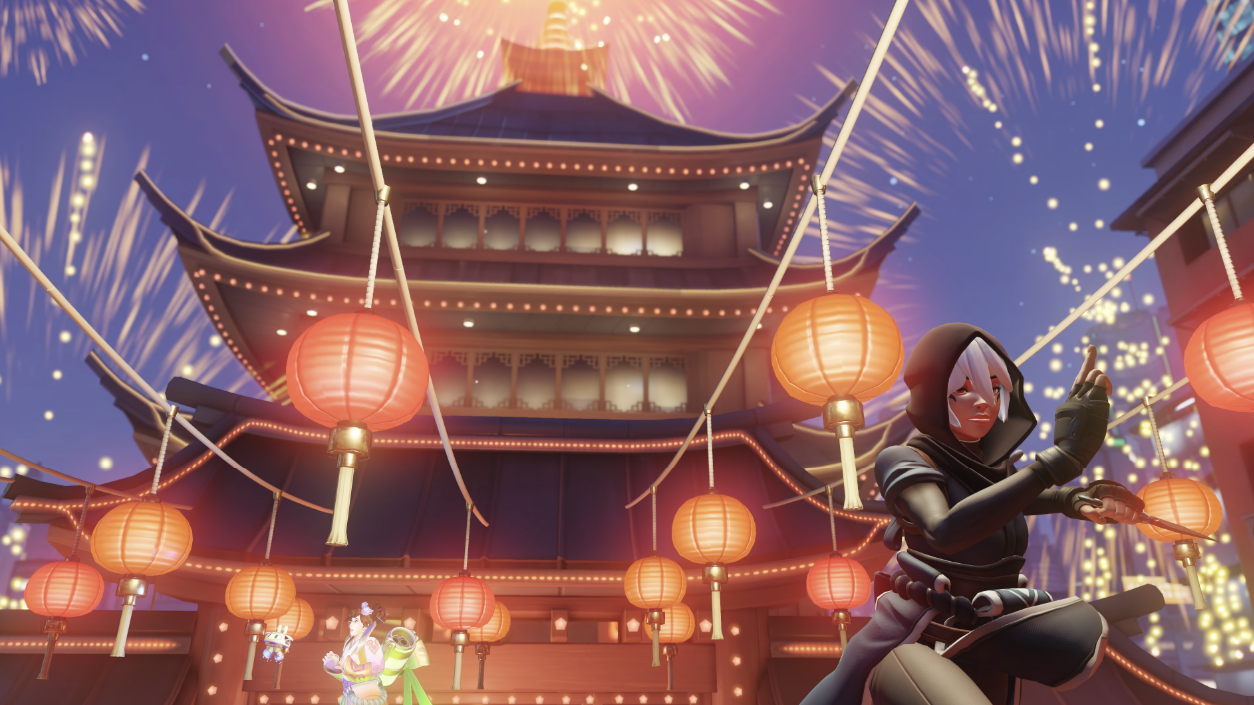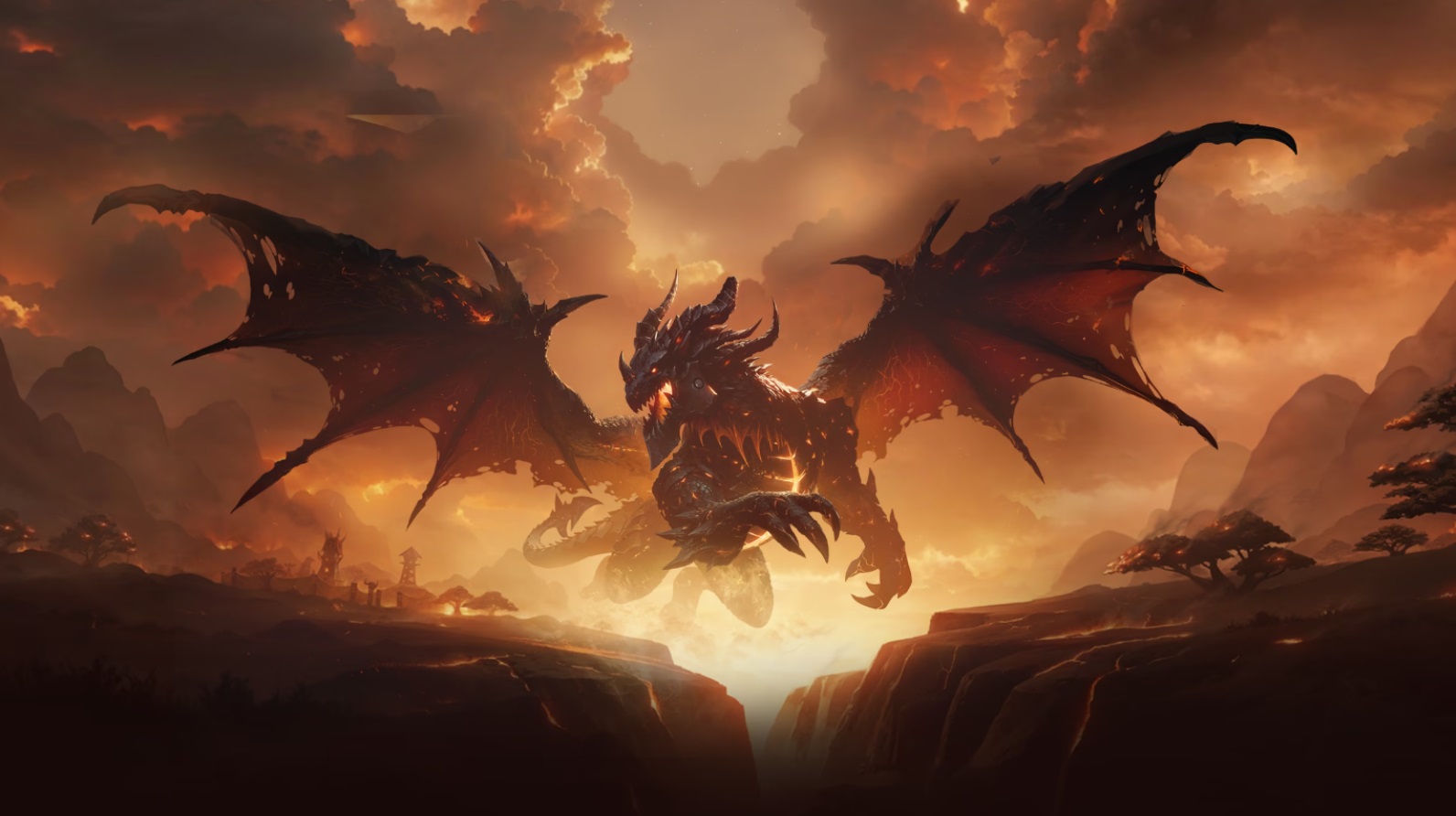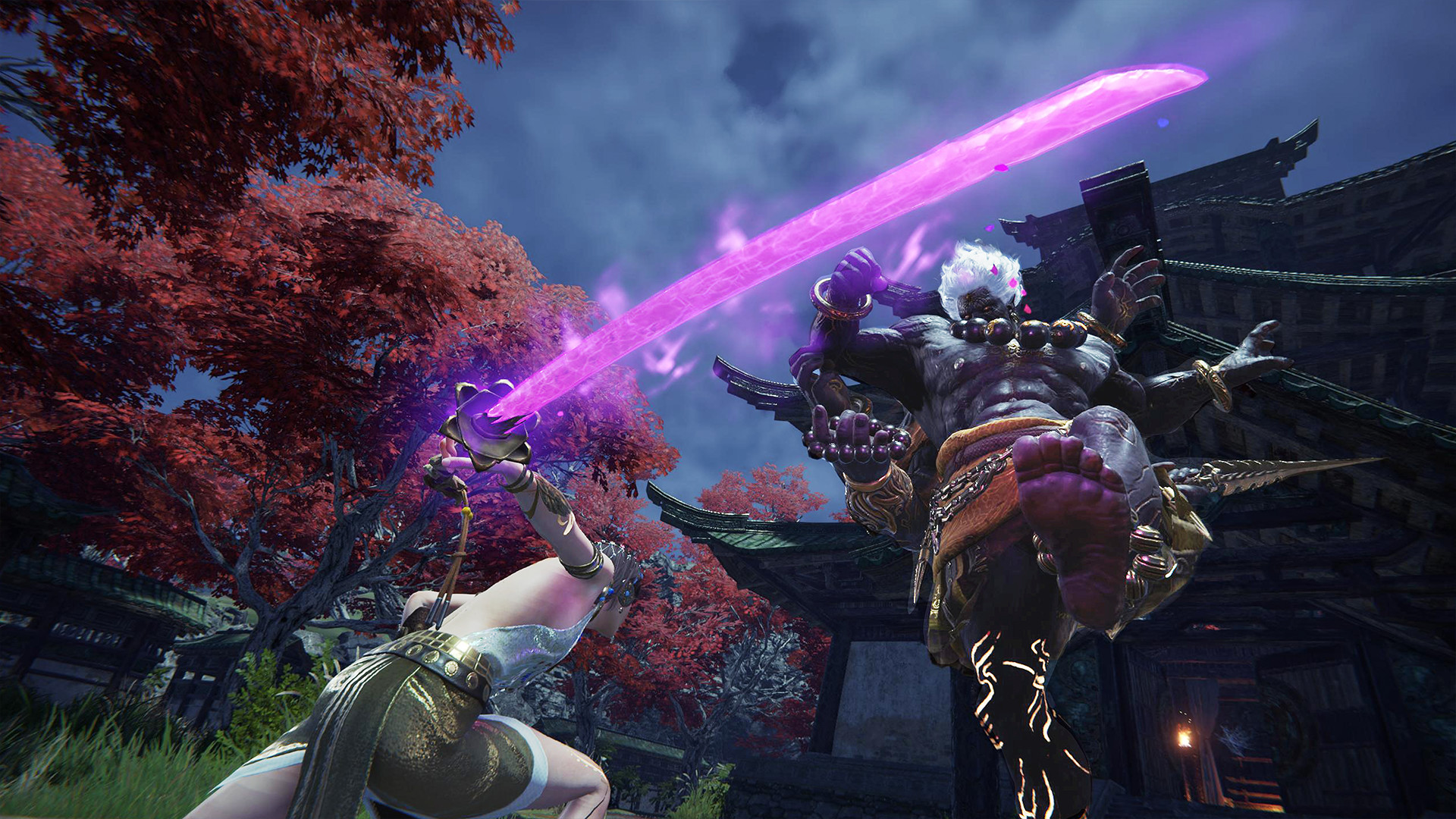What does Microsoft's big NetEase-Blizzard partnership mean for Xbox? An analysis.
Daniel Ahmad of Niko Partners offers us some insights: After a fairly high-profile bust up, NetEase and Microsoft have once again returned Blizzard franchises to the Chinese region. But what does it all mean?

Back in 2008, Blizzard Entertainment signed an agreement with Chinese tech giant NetEase to be the exclusive partner for publishing their games in the region. World of Warcraft, StarCraft II, to Overwatch, and more, NetEase and Blizzard served millions upon millions of fans in China for fourteen years, until things went south.
In 2022, Blizzard announced that it would be severing ties with NetEase following the expiry of their licensing agreement with the firm. Chinese players who had invested over ten years into their World of Warcraft characters were doomed to lose access. Overwatch and Hearthstone would no longer be available, either. Diablo Immortal would remain the last remnants of the original partnership, licensed under a different contract.
Both parties traded blame for the breakdown in relations. NetEase reportedly ceremoniously destroyed Blizzard iconography in its HQ, and CEO Simon Zhu blamed "one jerk" for the death of the partnership. Blizzard issued statements saying that it sought an extension on their original deal, claiming NetEase had rejected it. NetEase shot back, saying that Blizzard was offering the extension while also exploring other potential partnerships, calling it unfair.
Fast-forward to October 2023, and Microsoft has finalized a deal to acquire Activision-Blizzard for over $70 billion. Senior figures at Activision-Blizzard such as former CEO Bobby Kotick and Blizzard President Mike Ybarra both exited the company a short while later, leading us to today.
But what does the partnership mean for Microsoft in a broader context? What benefits could Xbox gamers across console and PC get out of this? And how will the partnership shape Blizzard games in the future? We tapped the expertise of Daniel Ahmad (@ZhugeEX), Director of Research and Insights at games industry intelligence firm Niko Partners to learn more.
A partnership broken, and then renewed

Activision-Blizzard announced the end of its partnership with NetEase back in 2022 via press release, stating "Blizzard Entertainment has had licensing agreements with NetEase since 2008, covering the publication of these Blizzard titles in China. The two parties have not reached a deal to renew the agreements that is consistent with Blizzard’s operating principles and commitments to players and employees, and the agreements are set to expire in January 2023."
A couple of years later, and it seems that Chinese gamers will once again be able to grace the worlds of Azeroth and Overwatch, starting this summer. Microsoft Gaming and Activision-Blizzard have partnered up with NetEase once again, in a deal hailed by Xbox CEO Phil Spencer. "Blizzard and NetEase have done incredible work to renew our commitment to players – Blizzard’s universes have been part of players’ lives in the region for many years," Spencer said. "Returning Blizzard’s legendary games to players in China while exploring ways to bring more new titles to Xbox demonstrates our commitment to bringing more games to more players around the world."
Get the Windows Central Newsletter
All the latest news, reviews, and guides for Windows and Xbox diehards.
Thanks to the incredible work done by @Blizzard_Ent and NetEase to renew our commitment to players, we will soon welcome back millions of community members in China to our Blizzard universes. This is exciting for everyone at Xbox, Blizzard, and for players everywhere. Read more: https://t.co/JKuZAH6bLjApril 10, 2024
The renewed partnership will go into effect this summer, just in time for the launch of World of Warcraft: The War Within in the west. Reportedly, Chinese players will have their accounts restored and shouldn't lose their progress, since it seems that the player data was retained and backed up.
It's a great thing for Chinese gamers, for sure. I can't imagine how I'd feel if I suddenly had my World of Warcraft characters wiped, some of which I've had for almost 20 years at this point. It's a happy ending for Blizzard fans in the east, but perhaps the partnership could blossom into something awesome for western gamers too.
But what does the link up mean beyond the obvious?

In case you weren't aware, the Chinese gaming market is not only truly massive, but is currently the largest in pure revenue terms right now. "China's games market is the largest market in the world, in terms of spending," Niko Partners' Daniel Ahmad explains, "in terms of gamers, there are 710 million gamers projected to be in the market by 2028. It's a $47.7 billion market. And by 2028, it'll be over $55 billion. So it's still growing."
Just how lucrative is that piece of the pie for Blizzard, and by extension, Microsoft Gaming? Incredibly lucrative, is the answer. "World of Warcraft is one of the top licensed titles that NetEase were publishing in China, and was one of the top 10 PC games in the country, in terms of number of players. In fact, we found that it was the number seven highest grossing PC game in China, in 2021."
Indeed, and that's only one of Blizzard's games. Titles like Diablo 4, Overwatch 2, Hearthstone, and recent mobile game Warcraft Rumble have all made the firm hundreds of millions of dollars across their life spans, many of which have yet to break ground in the region owing to the lack of a publishing partner. NetEase's stock price slid by 15% when the initial break-up went down.
"NetEase themselves were earning, we estimated, between five and $550 million to $800 million US dollars in total World of Warcraft spending each year on average, and that accounted for around 4 to 6% of their total revenue." Ahmad explained. Losing Activision-Blizzard titles like World of Warcraft and Overwatch contributed to a double-digit decline in NetEase's PC segment, year-over-year.

To publish games domestically in China, western developers need to follow various regulations in order to win approval, as Daniel Ahmad elaborated for us. "On a fundamental level, if Blizzard wants to distribute and publish its games in China, it needs two things: One is a license from the government in order to operate its game. And two is a Chinese publisher to distribute and operate the game in the country."
Players outside of supported regions can still use loopholes like VPN and the like to access these kinds of titles, but for always-online games like World of Warcraft, it's arguably the accounts that became the issue there. Those characters potentially represent hundreds, maybe thousands, or even tens of thousands of hours of work and progress. No amount of VPNs would be able to restore access to those accounts without a thawing of relations between NetEase and its western IP holders. Thankfully, NetEase and Microsoft are already on pretty good terms.
Microsoft and NetEase partnered previously to bring Naraka: Bladepoint to Xbox via Xbox Game Pass, and Phil Spencer noted in the initial press release that Microsoft wants to explore bringing more NetEase games to Xbox platforms via this renewed partnership. "NetEase has traditionally been known for MMO-styled games in the past, both on PC and mobile. But over the past five years or so, they have transitioned more towards the non-MMO genres, complete with AAA-style budgets. So, they're starting to become a bit more in line with what console players are interested in." Ahmad explained that NetEase has opened up several new studios in western regions to that end, and highlighted some of NetEase's upcoming projects, like Project Ragnarök and Project Mugen.
Could Project Mugen be Xbox's answer to Genshin Impact on PlayStation? Microsoft has notoriously struggled to attract "anime" style games to Xbox in the past, but has put in a ton of effort to bring games like Yakuza, Persona, and Final Fantasy 14: Realm Reborn to the platform. Sony's partnership with HoyoVerse for games like Genshin Impact and Honkai Star Rail has left Xbox fans without a similar option, but NetEase is currently incubating its own takes on these types of games, potentially giving Xbox fans a suitable alternative. It's worth noting that Xbox did have a big win with the Pokemon-inspired Japanese title Palworld at the start of this year.
READ MORE: Best upcoming JRPGs for Xbox
Daniel Ahmad explained that NetEase and Microsoft have already been partnering fairly extensively for some time, including on Minecraft itself in China. NetEase's version of Minecraft has an unimaginable 500 million registered players, owing in part to its free-to-play design there. Indeed, many games that are delivered to the Chinese market from western developers end up adapted in various ways, to cater to that audience and regulatory landscape.
It's also worth noting Microsoft's long-in-development Xbox Store for Mobile too — NetEase is a huge player in the mobile space, and is more traditionally known for it.
From my own perspective, Microsoft will doubtless leverage its relationship with NetEase to offer the firm a better deal than those offered by Apple and Google, as it seeks to win more and more allies to bring competition to Apple diktat on the types of games and business models that can succeed in the mobile space. Perhaps there are also games that will lend themselves well to cloud gaming, from NetEase's sizeable library.
A global Xbox is a better Xbox
Firstly, a huge shoutout to Daniel Ahmad and Niko Partners for fielding our questions.
I've written many times about Xbox's localization issues in the past, and shared the experiences of many Xbox fans from around the world about Microsoft's complicated relationship in regions beyond its home shores. Microsoft has gradually ramped up its investment in this space, and has pulled off some big wins in the process. Xbox Game Pass investment has helped a ton in this area, serving as a content fund of sorts to help developers offset risks of investing in a historically U.S.-centric box and audience.
The Chinese market in particular presents various challenges, whether it's from strong home-grown competition or a complex regulatory barrier — the sheer volume of players and revenue potential makes the hurdles more than worth it, though. And you saw just how much money goes through these titles, when localized properly. For Xbox and Blizzard, it opens up new revenue streams which can then be reinvested in producing content not just for the Chinese market, but the global market in general. Shared love of gaming and its universes can also break down cultural barriers and forge potentially unlikely friendships across the globe — I still have friends I made across Europe in World of Warcraft 20 years ago, that I remain close to, to this day.
It's great that the NetEase-Blizzard breakup has resulted in a happy ending, and the potential deepening partnership between NetEase and Microsoft could lead to cascading benefits for the Xbox audience as well.

Jez Corden is the Executive Editor at Windows Central, focusing primarily on all things Xbox and gaming. Jez is known for breaking exclusive news and analysis as relates to the Microsoft ecosystem while being powered by tea. Follow on Twitter (X) and Threads, and listen to his XB2 Podcast, all about, you guessed it, Xbox!


